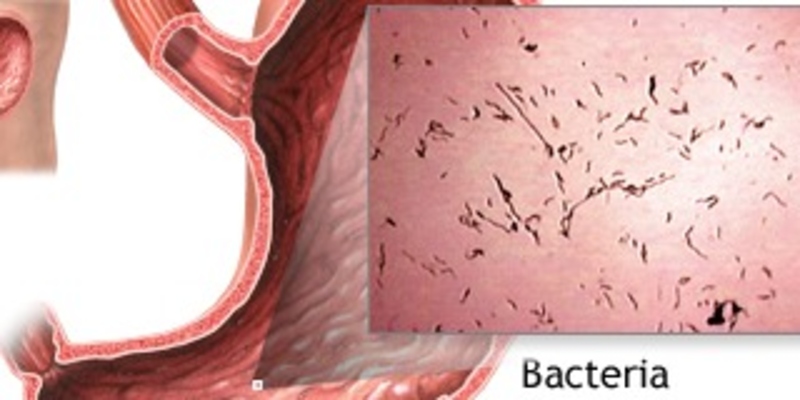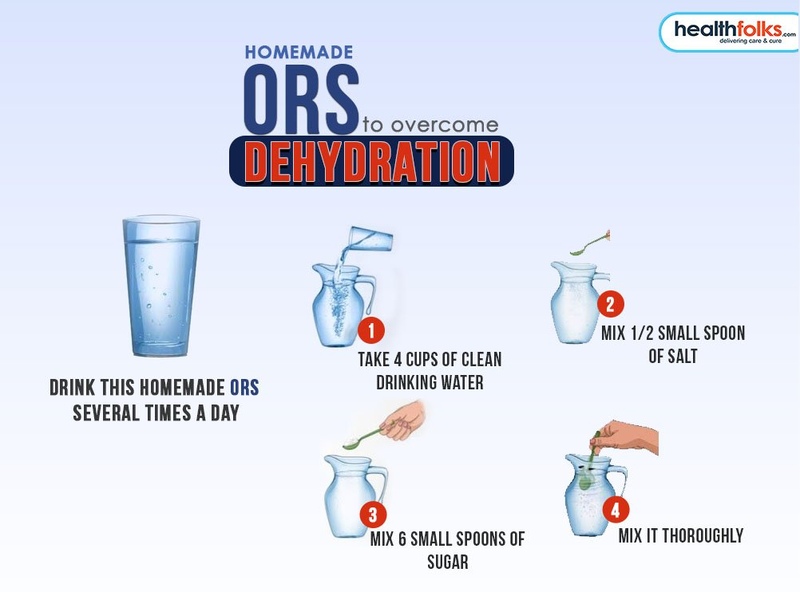Learn About Diarrhea – It’s Crucial
Nov 28, 2023 By Madison Evans
Addressing diarrhea, a condition that can stem from infections, medications, or dietary choices, proves not only discomforting and inconvenient but also potentially concerning when overlooked. Understanding the complexities of this prevalent health issue becomes crucial. It's more than just relieving symptoms. It involves an exploration of its causes, risk factors, and effective treatments.
Causes of Diarrhea
A variety of factors commonly contribute to the digestive issue, of diarrhea. Effective management necessitates a profound understanding of these underlying causes.
Infectious Causes:
Bacterial, viral, or parasitic infections significantly contribute to diarrhea. these microorganisms disrupt the digestive system's normal functioning. This is a process that leads to increased bowel movements and loose stools.
It is crucial for timely intervention and appropriate treatment to recognize symptoms associated with infectious causes.
- Bacterial Infections:
Diarrheal infections are commonly associated with bacteria such as E. coli, Salmonella, and Campylobacter. Primary sources of these infections are contaminated food and water. Symptoms that might manifest include abdominal cramps along with fever.

- Viral Infections:
Norovirus and rotavirus, as viruses, can induce viral gastroenteritis that results in diarrhea. Their high contagion often facilitates the spread of these infections within densely populated environments, with symptoms potentially encompassing nausea and vomiting.
- Parasitic Infections:
Giardia and Cryptosporidium parasites can cause extended episodes of diarrhea. Common vectors are contaminated water sources. Weight loss and fatigue may manifest as symptoms.
Understanding the specific infectious cause: enables us to devise targeted treatment and management strategies.
Medication-Induced Diarrhea:
Disrupting the delicate balance of the digestive system, certain medications can result in diarrhea. To manage this side effect, it is crucial not only to identify common drugs associated with it but also to understand their management techniques.
- Antibiotics:
The natural balance of gut bacteria can be disturbed by antibiotics, which leads to diarrhea. To restore microbial equilibrium, one may receive a recommendation for probiotics.
- Nonsteroidal Anti-Inflammatory Drugs (NSAIDs):
Ibuprofen, an NSAID, may irritate the digestive tract and contribute to diarrhea. Thus, it is necessary to consider adjusting dosage or exploring alternative pain management methods.
- Laxatives:
Understanding the proper usage of laxatives and seeking necessary medical advice is crucial to prevent the side effects of chronic diarrhea, which excessive use can cause.
Individuals, upon recognizing the medication-induced causes of diarrhea, can collaborate with healthcare professionals to adjust treatment plans. They minimize gastrointestinal disruptions.
Dietary Triggers:
Identifying specific foods and substances that can contribute to diarrhea empowers individuals: this empowerment equips them with the knowledge – a profound one; their diet significantly impacts digestive health. Therefore, they can make informed choices for an enhanced state of gastrointestinal well-being.
- High-Fat Foods:
Excessive consumption of high-fat foods can induce diarrhea. the efficiency with which the digestive system processes and absorbs fats may be challenged.

- Dairy Products:
Individuals who cannot properly digest dairy products may experience diarrhea as a result of lactose intolerance. They must recognize this condition.
- Artificial Sweeteners:
Sorbitol and mannitol, among other artificial sweeteners, may induce a laxative effect and potentially contribute to diarrhea. To circumvent these triggers, check ingredient labels diligently.
Individuals who understand the dietary triggers for diarrhea can modify their diets in a way that enhances digestive health and minimizes the chances of experiencing loose stool episodes.
Risk Factors for Diarrhea
Recognizing certain factors that heighten the likelihood of experiencing diarrhea becomes crucial for prevention and proactive management; this underscores their importance.
Age-Related Risk:
Understanding age-specific vulnerabilities is crucial due to its significant role in susceptibility to diarrhea. This understanding enables tailored care and effective prevention.
Infants:
The susceptibility of infants to diarrhea often results from their developing immune systems and the introduction of new foods. Diligent monitoring of their diet becomes paramount. Equally crucial is swift attention to any emerging symptoms.
Elderly:
Age-related changes in the digestive system increase the susceptibility of the elderly. Minimizing their well-being's impact necessitates providing them with adequate hydration and nutrition.
Underlying Conditions:
Managing underlying health issues and adhering to medical advice constitute vital components in reducing the likelihood of diarrhea. Chronic illnesses and immune-suppressing conditions can escalate this risk.
Medication Effects:
Immunosuppressants, among certain medications, have the potential to compromise the immune system. To mitigate risk effectively, one must comprehend possible side effects and engage in discussions about alternatives with healthcare providers.
Contaminated Food and Water:
Traveler's diarrhea commonly results from consuming contaminated food or water. The risk significantly reduces when one adheres to safe practices regarding food and water. Drinking bottled water instead of tap water and avoiding street food are a few simple yet effective measures.
Effective Treatment for Diarrhea
Effective treatment for addressing diarrhea necessitates a multi-faceted approach. It aims to alleviate symptoms and promote an accelerated recovery. The following key aspects warrant consideration:
1. Hydration and Electrolyte Balance:
During episodes of diarrhea, it is paramount to maintain proper hydration. Insufficient intake of fluids can cause dehydration, which worsens symptoms and extends the recovery period. Reflect on these considerations:
- Oral Rehydration Solutions (ORS): Particularly beneficial for rehydration during bouts of diarrhea, these solutions facilitate optimal fluid absorption with their precise balance of electrolytes and sugars.

- Electrolyte-Rich Beverages: Certain electrolyte-rich beverages, like sports drinks, can assist in replenishing lost electrolytes due to diarrhea. this is in addition to Oral Rehydration Solutions (ORS). Nevertheless, exercise caution when consuming options high in sugar.
- Water Intake: Ensure you maintain hydration by regularly sipping plain water throughout the day. Aim to replenish fluid lost during episodes of diarrhea with small, frequent sips as they are typically better tolerated than consuming large quantities at once.
2. Dietary Modifications:
Explore the following recommendations for adopting specific dietary modifications; these can ease the burden of diarrhea, consequently supporting a quicker recovery:
- BRAT Diet: The BRAT diet, which includes bananas, rice, applesauce, and toast, offers easily digestible, yet binding, foods. Such choices not only firm up stools but also reduce irritation to your digestive system.
- Plain and Bland Foods: Incorporate other plain and bland foods into your diet beyond the BRAT items. Boiled potatoes, plain crackers, and cooked carrots exemplify gentle options for the digestive system.
- Avoid Trigger Foods: Identify and steer clear of foods specifically, spicy, greasy, and high-fiber options. These may aggravate diarrhea. To potentially gain some relief, consider temporarily eliminating them from your diet.
3. Over-the-Counter Medications:
Understanding the available options and their mechanisms is crucial to managing diarrhea symptoms. Over-the-counter (OTC) medications actively play this role:
- Anti-Diarrheal Medications: Loperamide and similar medications can reduce the frequency of bowel movements, alleviating symptoms of diarrhea. Carefully adhere to dosing recommendations, if symptoms persist, consult a healthcare professional.
- Bismuth Subsalicylate (Pepto-Bismol): Both anti-inflammatory and antimicrobial properties characterize this medication. It alleviates diarrhea symptoms and soothes an irritated digestive system.
- Probiotics: Incorporate probiotics into your regimen. These supplements support the restoration of healthy gut bacteria, thereby contributing to a more balanced digestive system.
Integrate these treatment strategies to actively manage and alleviate diarrhea symptoms. Tailor these approaches to your specific needs. Consult with a healthcare professional if symptoms persist or worsen.
Conclusion
Understanding the causes, risk factors and effective treatments for diarrhea empowers individuals to proactively manage this common health condition. The key to managing it effectively lies in informed decision-making and timely interventions such as adopting a healthy diet, maintaining hydration, or seeking medical advice when necessary. These are all proactive steps that mitigate risks associated with this ailment.







